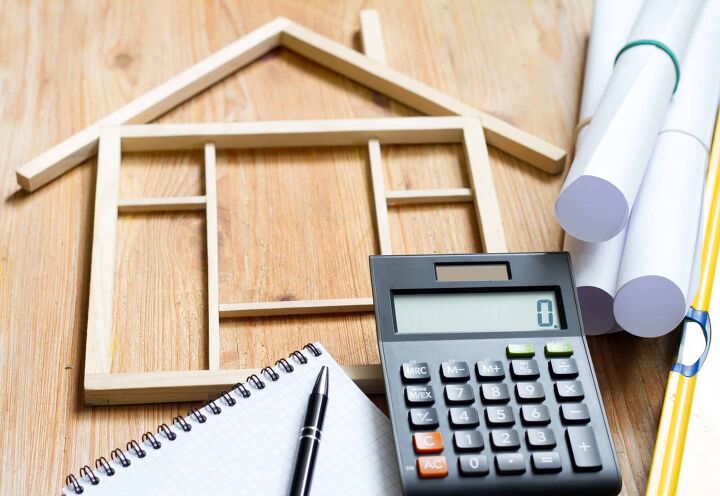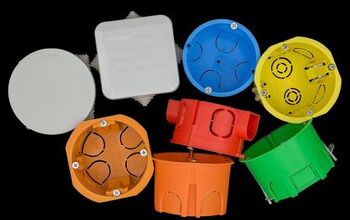What Expenses Can I Deduct When House Flipping?

If you’ve been watching TV shows like Flip or Flop, you might have noticed how much those flippers splurge on fixing a home. Part of the reason why most home flippers are able to make the expensive buys they do deal with the fact that the IRS allows for a nice range of expenses for home flippers.
People who are new to flipping are probably wondering what they deduct, and rightfully so.
How your expenses are deducted will rely on whether or not you’re a “dealer” or just using it as an investment. Most home flippers, though, will be able to write off expenses that deal with repairs, advertising, travel, as well as materials used in their home.
Truthfully, trying to figure out what your deductions can be is a matter that’s best left up to an accountant. However, we’re going to try to explain the expense rules for you as a way to help you estimate whether or not a “fix and flip” is the right choice for you.
How To File Taxes When Flipping A House
The way that you file taxes during a house flip is going to change depending on whether or not you are using a business as a way to flip it. Here’s what you need to know:
- If you are doing the flip without establishing a business, you are considered to be an individual investor. This is not considered to be a “dealer.” You will be paying capital gains tax.
- If you are flipping houses as a sole proprietor (S), LLC, or S-Corp, you will most likely be considered a dealer. Dealers pay the same taxes a typical person would get as a wage earner. You are also a dealer if you make more than $1,000 a year on flipping homes.
It’s important to talk to an accountant to figure out which tax schedule would work best for you. With that said, both dealers and investors tend to have similar expense write-offs that they can use in order to reduce the amount of taxes they have. When you’re flipping a home, you will need to file a 1040 Schedule C.
How Often Do You Need To File Taxes As A Home Flipper?
If you’re an individual who’s just flipping one house and will have ownership of the home for more than a year, chances are that you are going to be alright with filing them once a year. If you have a “dealer” status, then you should file your taxes quarterly.
What Are The Most Common Expenses You Can Write Off During A House Flip?
House flipping is notoriously expensive, but thankfully, the IRS is pretty nice about what you can do to reduce the tax burden. The best way to ensure that you can reduce your tax burden is to write off expenses.
Fix and flip investors are allowed to deduct particular expenses before the property is “flipped,” while there are some deductions that can only be made once the work has been finished and the house is sold.
The most common expenses include:
Capital Expenditures
This is an umbrella term for expenses that are done with the need to purchase and flip the house. While you can’t deduct the price of the home that you buy, you can deduct taxes, fees, interest, closing costs, as well as things like sales commission.
When calculating the interest and taxes you can deduct, make sure to calculate it based on the time period that you’ve kept the home.
Renovation Costs
Another major write-off that house flippers get to enjoy deals with renovation costs. Simply put, this is an umbrella term for all the money that you might need to pay as part of renovating. This includes things like getting your home inspected, renovation permits, materials, as well as actually paying the contracting crew.
However, this expense is one of those that is only deductible after the house is sold.
Home Business Expenses
If you are filing as an LLC or are deemed to have a business, you also get the right to write off home business expenses. These include things like your cellphone bill, utilities related to having a home office, business cards, professional memberships, as well as office supplies. Believe it or not, even rare types of home businesses like homebrewing can deduct the supplies.
If you advertise your home for sale or need to travel to the home site, those expenses can also be included as part of your taxes. Also, if you hired a real estate agent to locate the property, the commission paid to them is tax deductible.
Travel and Other Expenses
If you have to travel as part of your house flipping project, you can generally deduct the cost of mileage placed on your vehicle, so long as it applies to conducting business. Travel and lodging expenses that must be performed for business operations can also be deducted.
Make sure that you account for the gas used while traveling to and from the property and any wear and tear that occurred to the vehicle. Also, if you entertain potential buyers by taking them out to dinner or lunch, these are deductible expenses.
How Can I Avoid A Capital Gains Tax With A House Flip?
House flips are known for having high expenditures as well as being a magnet for the capital gains tax. The capital gains tax is a specialized investment tax. This can mean that your flip could get as high a tax rate as 10 percent or more.
Thankfully, there are ways to avoid or reduce a capital gains tax with a house flip. These include:
- Keeping the house for more than a year. If you do a fast fix and flip, then you will be subject to a short-term capital gains tax. This starts at 10 percent, which can take a huge chunk of change off your profits. By keeping the house for more than a year, you decrease your tax.
- Find out if you are even required to pay capital gains. This all depends on whether you’re a dealer or not. If you’re not a dealer, you will have to pay capital gains taxes. This is, of course, advantageous to having to pay taxes like a regular wage.
- Remember to mention expenses. The more expenses you have, the less capital gains you will have to pay.
- You can also flip your home on the 1031 exchange. This is a way to get a house that is tax-deferred when it comes to profits. With this exchange, you will “sell” your home for a home of an equal value.
Is Fixing And Flipping Worth The Taxes?
This is the million-dollar question, and honestly, it depends on the house flip. The average successful house flipping project will yield around $20,000 in profit. If you were hoping for the profit to be enough to live on for a year, that’s not going to be the case. That’s why most house flippers have another job or are classified as dealers.
It’s part of a house flipper’s job to make sure that the house they choose to fix and flip will be able to turn a profit. This, in and of itself, is part of the skill set that makes a flipper successful. If you don’t know how to make it work, then you should not attempt to make a living off flipping homes.
House Flipping Taxes vs. Long-Term Rental Taxes
If you own any sort of investment, whether it be stocks, real estate, or a vintage car, and sell it for profit after owning it for a year, the profit is considered by the IRS to be normal income. In this case, you are considered a “dealer” and are taxed at your standard tax rate.
As a “dealer,” you are someone who purchase something, improves it, then turns around and resells it for a profit. In the eyes of the government, a real estate investor is the same as an antiques dealer and a vintage car restorer.
Whether you buy homes under an LLC or your own personal name, you are a business. The more you function as a business, including having a real estate investing plan, the more chance you have of being profitable. Landlords, on the other hand, are viewed differently. They are not considered “dealers” and instead are seen as long-term investors, which grants them preferential tax treatment.
Related Questions
How long does it take to fix and flip a home?
This depends on how you’re doing the flip. If you are looking at a short-term flip, you should expect to have the entire process done within 90 days. If you want to sell the house in a year, then you might have a longer timespan.
Should I call a CPA about my house flipping taxes?
If you are ever confused about how to pay taxes on your house flip, you should go to a tax expert as soon as possible. A CPA will be able to advise you on how to make the most of your profit and how to keep yourself compliant.
Is flipping a house hard?
If you have the right connections and know where to find cheap houses, then flipping a house won’t be hard. However, most people are not equipped to do it alone. If you want to learn the ropes, join a real estate investing group.

Ossiana Tepfenhart is an expert writer, focusing on interior design and general home tips. Writing is her life, and it's what she does best. Her interests include art and real estate investments.
More by Ossiana Tepfenhart













![10 Best Scroll Saws for 2022 [Ultimate Reviews & Buyer's Guide]](https://cdn-fastly.upgradedhome.com/media/2023/07/31/9070684/10-best-scroll-saws-for-2022-ultimate-reviews-buyer-s-guide.jpg?size=350x220)













